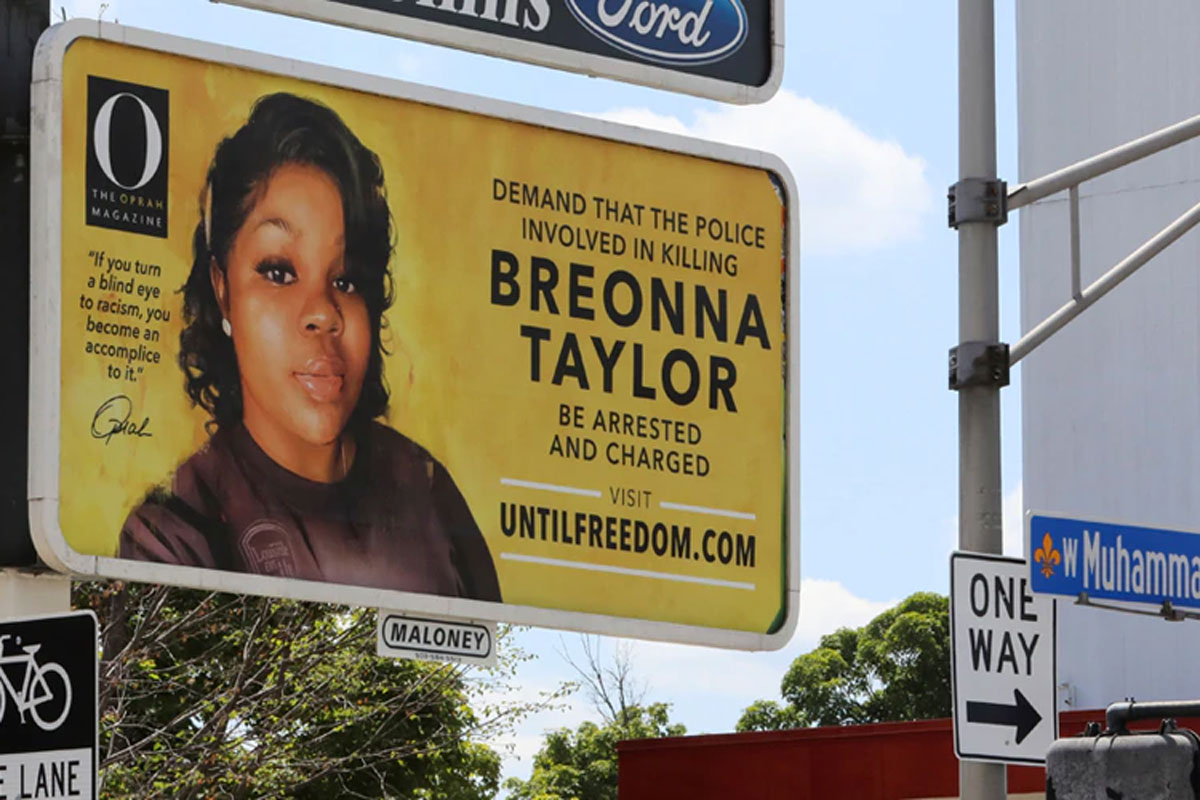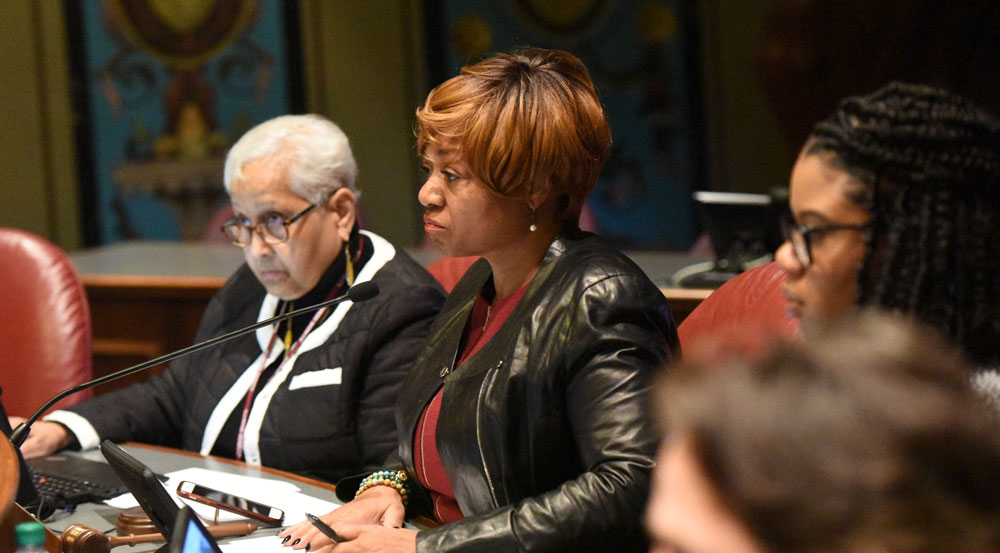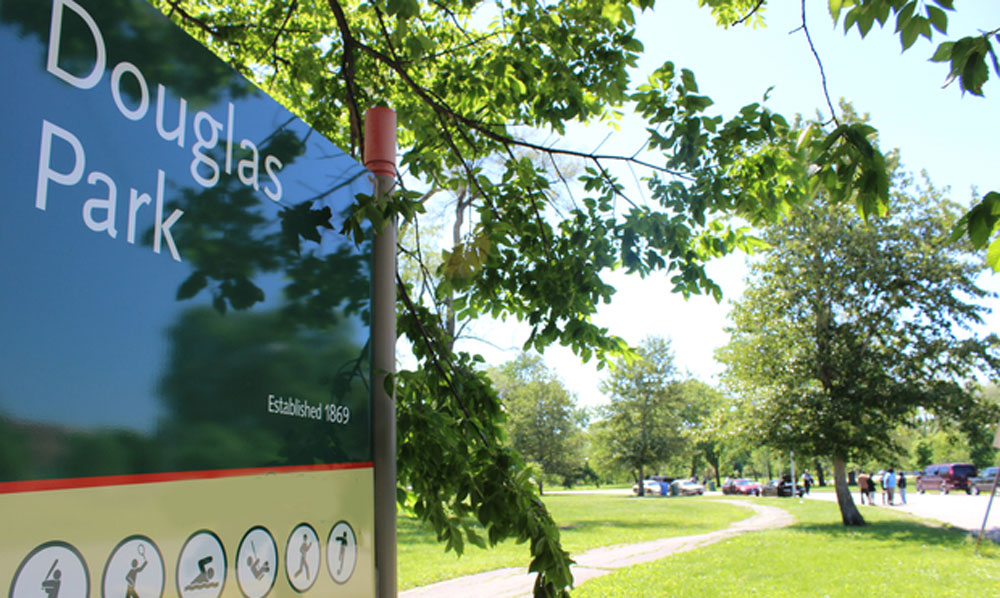- Details
- Category: Senator Patricia Van Pelt News
 CHICAGO – Wednesday, a grand jury indicted a former police officer involved in the March shooting of Breonna Taylor, but on charges of wanton endangerment. None of the three officers involved in the shooting were charged for Breonna’s death, and State Senator Patricia Van Pelt (D-Chicago) is infuriated.
CHICAGO – Wednesday, a grand jury indicted a former police officer involved in the March shooting of Breonna Taylor, but on charges of wanton endangerment. None of the three officers involved in the shooting were charged for Breonna’s death, and State Senator Patricia Van Pelt (D-Chicago) is infuriated.
“This is one of the grossest acts of injustice I have seen in my lifetime. This decision made by the grand jury suggests that the walls of Breonna’s neighbors mattered more than her life. Further, this decision is proof that the system is deeply flawed, and so broken that there is no accountability for the people who murdered Breonna Taylor in her own home.
“So again, our cry, ‘Black Lives Matter,’ has fallen upon deaf ears. Again, we have seen those who are supposed to protect and serve take life and evoke fear. But we will not stay silent. We will keep marching, we will keep demanding equality, and protesting peacefully.
“And I will not stop fighting until there is no longer a need for hashtags for those who have lost their lives unjustly. Breonna Taylor’s life mattered, and I pray for peace for her family and loved ones.”
- Details
- Category: Senator Patricia Van Pelt News
 CHICAGO — The second wave of Business Interruption Grants opened Thursday, and State Senator Patricia Van Pelt (D-Chicago) is urging eligible businesses to apply.
CHICAGO — The second wave of Business Interruption Grants opened Thursday, and State Senator Patricia Van Pelt (D-Chicago) is urging eligible businesses to apply.
“As more types of businesses reopen, they, too, are in need of support,” Van Pelt said. “I know these grants won’t solve everything, but it will provide businesses with a chance to recuperate from all the loss they have suffered.”
The second round of BIG funding builds on $49 million in grants awarded statewide in August, where businesses received $10,000 to $20,000 to help with expenses like payroll costs, rent, utilities, equipment, and other possible unexpected costs to relieve the effects of the pandemic.
This time around, a variety of businesses will receive anywhere from $5,000-$150,000 each, with $220 million in total allocated funds available for statewide distribution.
For heavily distressed industries, such as indoor recreation facilities and amusement parks, $60 million has been specifically allocated to ensure they are not overlooked. Additionally, $70 million has been set aside for businesses located in disproportionately impacted areas (DIA), or low-income areas that have experienced high rates of COVID-19. Businesses located in the 60612, 60624 and 60651 ZIP codes are included in the DIA list. A full list of eligible ZIP codes can be found here.
Eligible businesses are encouraged to apply here.
- Details
- Category: Senator Patricia Van Pelt News
 CHICAGO – Chicagoans reentering the workforce face new challenges, given the record high unemployment rates caused by the pandemic, which is why State Senator Patricia Van Pelt (D-Chicago) wants people to be aware of the Chicago Transit Authority’s Second Chance Program.
CHICAGO – Chicagoans reentering the workforce face new challenges, given the record high unemployment rates caused by the pandemic, which is why State Senator Patricia Van Pelt (D-Chicago) wants people to be aware of the Chicago Transit Authority’s Second Chance Program.
“The Second Chance Program is exactly that: a second chance,” Van Pelt said. “It provides opportunities for people who have been struggling to find work and for people looking to turn their lives around.”
Through the Second Chance program, professional services such as trainings, education, mentoring and networking opportunities are provided to people returning from prison, victims of abuse and others who have a harder time finding employment.
This holistic approach equips those reentering the workforce with the skills necessary to support themselves, which is a crucial step in decreasing recidivism. Over a thousand Chicagoans have participated in this program, which has become one of the largest reentry programs in the nation.
“When recidivism persists, no one wins,” Van Pelt said. “People reentering the workforce need support. They deserve a chance to provide for themselves and for their families. They deserve to contribute to the economy, rather than taxpayer dollars being spent on their re-incarceration because a lack of opportunity led them back into a life of crime.”
The CTA has hired at least 300 Second Chance participants, while many others have moved on to private-sector jobs.
Job seekers looking to apply for the CTA Second Chance Program or find more information at TransitChicago.com/secondchance.
- Details
- Category: Senator Patricia Van Pelt News
 CHICAGO – After conflicting reports regarding an officer-involved shooting sparked confusion and violence in the city, State Senator Patricia Van Pelt (D-Chicago) is calling for transparency.
CHICAGO – After conflicting reports regarding an officer-involved shooting sparked confusion and violence in the city, State Senator Patricia Van Pelt (D-Chicago) is calling for transparency.
“As I’ve said before, there is a big difference between those who protest in the streets for justice, and those who are looting for opportunity,” Van Pelt said. “There are people grieving the disparities in our community, questioning the credibility of the police after they shot yet another Black man. In many cases, these people are not the same as the looters.”
Though it has been reported that Latrell Allen shot at officers first, many Black Chicagoans still question the credibility of the Chicago Police Department’s account. Despite mandatory body camera policies, there is currently no video evidence of the incident. Allen’s public defender claims he was shot in the back, which is a narrative all too familiar in the longstanding case against police brutality and Black men — including the deaths of Rayshard Brooks and Walter Scott.
More than 100 people were arrested Monday following the looting of various store fronts downtown. Englewood residents fed up with the looting blocked Black Lives Matter protesters when they entered the neighborhood Tuesday, stating that protestors will amp up tensions with the police, but won’t be there when it’s time for Englewood residents to deal with the backlash.
“Tensions were already high due to stress and issues stemming from coronavirus, not to mention police brutality,” Van Pelt said. “We have a desperate need for more transparency between local authorities and civilians. We have a desperate need to come together, to love each other, to put an end to the nonsense. I am working every day to bring together these gaps, to dispel the inequities that have been debasing our city.”
Allen, 20, has been charged with attempted first degree murder and is recovering at the University of Chicago Medical Center. The Civilian Office of Police Accountability is investigating the officer-involved shooting. Another protest against police brutality is expected to take place Saturday.
- Details
- Category: Senator Patricia Van Pelt News
 CHICAGO – The Illinois State Police’s Division of Forensic Services (DFS) Forensic Sciences Command (FSC) released the DNA Accountability Report for Fiscal Year 2020 last week, and State Senator Patricia Van Pelt (D-Chicago) is highlighting its major improvements to reduce the DNA backlog, while recognizing there is still work to be done.
CHICAGO – The Illinois State Police’s Division of Forensic Services (DFS) Forensic Sciences Command (FSC) released the DNA Accountability Report for Fiscal Year 2020 last week, and State Senator Patricia Van Pelt (D-Chicago) is highlighting its major improvements to reduce the DNA backlog, while recognizing there is still work to be done.
“I am excited about the progress ISP has made,” Van Pelt said. “I hope this trend continues, and I will keep tracking them to make sure they continue to move forward in fulfilling their commitment to giving these families justice.”
During FY20, biology submissions were up by 9% from the previous fiscal year, and ISP completed nearly 16,000 biology assignments within the laboratory system, reducing that backlog by at least 30%.
With the implementation of the new Laboratory Information Management System, ISP now defines “backlog” as an unfinished offender sample, either in-progress or one that hasn't begun.
ISP employed a total of 61 fully trained forensic scientists working on Biology assignments or performing analytical-related activities in June.
In addition to the constant pursuit of federal funding, ISP addressed the biology backlog through outsourcing, the use of overtime and the purchase of additional commodities and equipment, ensuring that more cases were analyzed. In FY20, ISP spent $2.6 million in federal grant funds, which is a 116% increase from the $1.2 million in FY19.
“This report shows a great deal of progress from where efforts were just a few years ago,” Van Pelt said. “But we must keep in mind that just because the kits were processed, doesn’t mean the cases were closed. There are families still awaiting due process in Chicago, and I won’t stop fighting for them until they get it.”
To further reduce the backlog, ISP plans to implement other initiatives including probabilistic genotyping, purchasing additional automated instruments, and streamlining additional procedures.
ISP’s latest developments on the backlog can be tracked here.
- Details
- Category: Senator Patricia Van Pelt News
 CHICAGO – Earlier this week, State Senator Patricia Van Pelt (D-Chicago) hosted mobile COVID-19 testing for over a hundred adults on the city’s West Side in a collaboration with Howard Brown Health, West Garfield Community Park Stakeholders, and Fathers Who Care.
CHICAGO – Earlier this week, State Senator Patricia Van Pelt (D-Chicago) hosted mobile COVID-19 testing for over a hundred adults on the city’s West Side in a collaboration with Howard Brown Health, West Garfield Community Park Stakeholders, and Fathers Who Care.
“The older adults in my community are still struggling,” Van Pelt said. “The pandemic is still out there, and they still didn’t have access to necessary resources to stay alive. We wanted to do whatever we could to address that, hoping to provide some relief.”
Many residents at John Sullivan and Chicago Albany Terrace Apartments have been at a major disadvantage during this pandemic, with no access to transportation, food, and other resources, made worse by the limited access they had to their families.
Census workers were also in attendance, helping residents fill out the census on site in order to boost the region’s participation. In the 2010 Census, Black Americans were missed by a rate of 9% -- a rate higher than any other racial or ethnic group in our country.
“Time is running out to complete the census,” Van Pelt said. “This was an important event for seniors to get tested and get counted – both of which will ultimately better our communities.”
In light of calls for justice and equity across the nation, the census is more important now than ever before. Responding to the census is one way Illinoisans can push for social justice in their neighborhoods. Inaccurate data results in inadequate funding for underserved communities.
Anyone who hasn’t filled out the census can do so at my2020census.gov or expect to see census workers at their door around August 11.
People interested in donating resources for older adults can do so here.
- Details
- Category: Senator Patricia Van Pelt News
 CHICAGO – After years of being challenged by West Side youth, the Chicago Park District Board voted Wednesday to rename Douglas Park after famed abolitionist Frederick Douglass. State Senator Patricia Van Pelt (D-Chicago) is celebrating the victory in her district.
CHICAGO – After years of being challenged by West Side youth, the Chicago Park District Board voted Wednesday to rename Douglas Park after famed abolitionist Frederick Douglass. State Senator Patricia Van Pelt (D-Chicago) is celebrating the victory in her district.
“I’m glad the city is finally taking this step, after years of pleas to rid the park of Stephen Douglas’ name,” Van Pelt said. “Though there’s still massive issues in front of us, these victories are also significant, and I hope other cities will reconsider the monuments and park names across the state.”
Students from the Village Leadership Academy in North Lawndale first asked the board to rename the park back in 2017, and have not let up since, creating petitions and receiving support letters from local officials.
Most recently, students held a teach-in at the park to further invigorate their campaign and educate their community on Stephen Douglas and Frederick and Anna Murray Douglass.
“The voices of our youth are so important,” Van Pelt said. “It brings a smile to my face knowing the difference they’ve made this week. I implore them to keep educating, and keep raising their voices against injustice.”
The board voted unanimously to rename the park, giving residents 45 days to weigh in on the decision. Mayor Lori Lightfoot has confirmed that this decision is a part of a larger plan “to address our racial history and past, to take account and inventory of what exists in the city and sister agencies to memorialize our past but also account for what’s missing.”
- Details
- Category: Senator Patricia Van Pelt News
 CHICAGO – State Senator Patricia Van Pelt (D-Chicago) is calling on lawmakers to reevaluate the statues on Illinois state capitol grounds, starting with the replacement of the Stephen Douglas statue with the country’s first Black president and former Illinois senator.
CHICAGO – State Senator Patricia Van Pelt (D-Chicago) is calling on lawmakers to reevaluate the statues on Illinois state capitol grounds, starting with the replacement of the Stephen Douglas statue with the country’s first Black president and former Illinois senator.
“Former President Barack Obama has accomplished so much, and there is barely any celebration of him anywhere around our state capitol,” Van Pelt said. “Some of the most significant moments in his early career took place in Springfield. It is a statue that’s long overdue.”
Douglas, like many politicians of his era, was a racist who owned slaves. He supported the 1857 ruling in Dred Scott v. Sandford, which denied enslaved people their freedom, even in free states like Illinois. More than 750,000 Americans felt the way Douglas did, which led to a war over slavery.
Despite their defeat, Confederate memorabilia still is seen around the state and country.
For many Black Americans, this memorabilia is a sign of hate, with symbols such as the Confederate Flag being comparable to how Jewish people feel about the swastika.
“Tearing down racist statues is not erasing history,” Van Pelt said. “If America is serious about the empowerment of Black lives -- and other groups that have been marginalized in this country -- it should be reflected in our symbols and in our statues.”
In calling for the removal of the Douglas statue, Van Pelt echoes sentiments from colleague Senator Emil Jones III. If Douglas’ statue was removed, Illinois would join a handful of states that have begun to tear down these statues of oppression in response to the death of George Floyd.
More Articles …
Page 8 of 11













 © 2026 Illinois Senate Democratic Caucus
© 2026 Illinois Senate Democratic Caucus